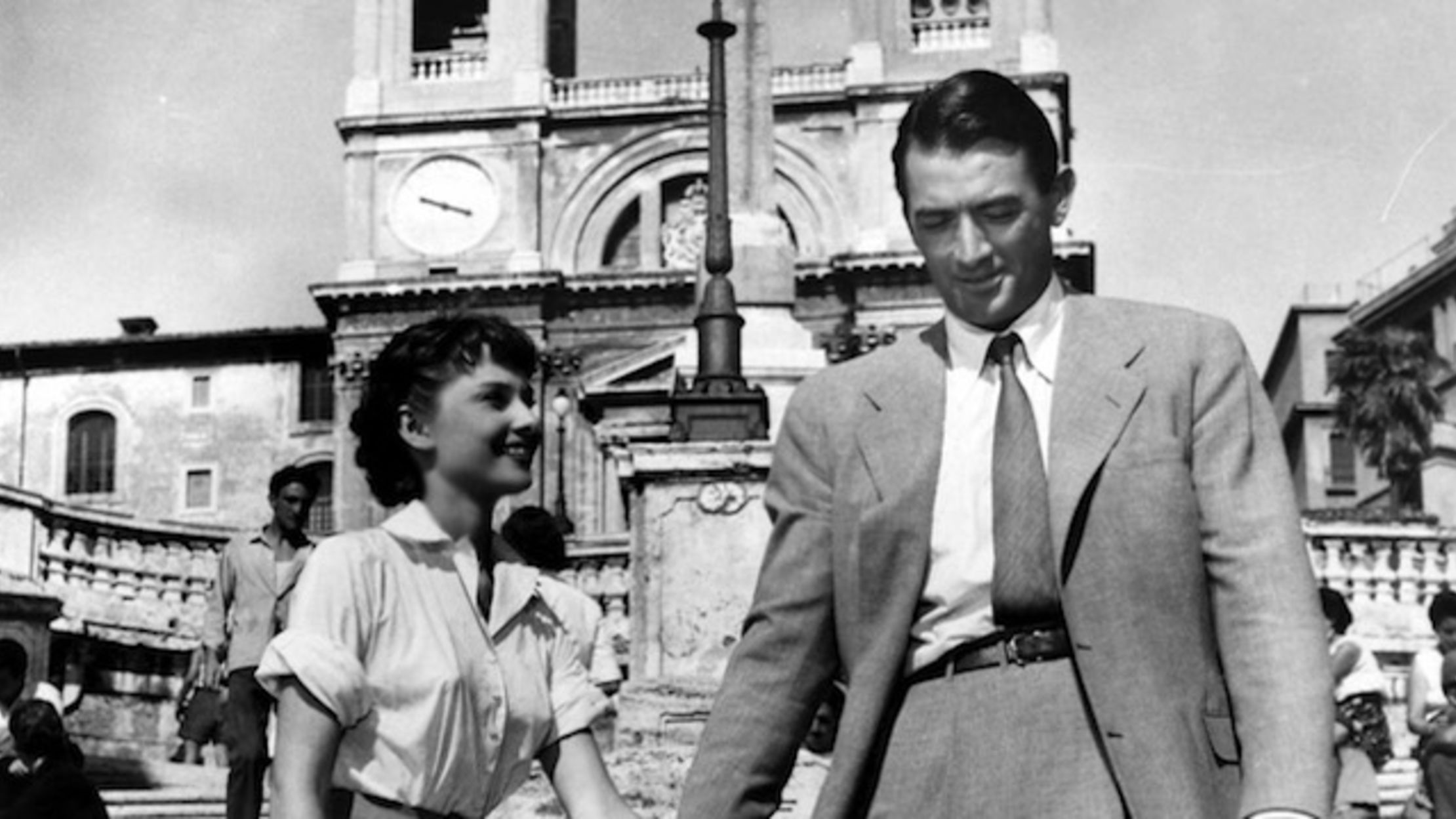‘Roman Holiday’ revisited: Hepburn and Peck take us on the getaway of our dreams
A new 'Roman Holiday' Blu-ray showcases a wonderful feeling of escape at a moment when moviegoers feel especially closed-in.

The latest updates, reviews and unmissable series to watch and more!
You are now subscribed
Your newsletter sign-up was successful
Want to add more newsletters?

ONCE A WEEK
What to Watch
Get all the latest TV news and movie reviews, streaming recommendations and exclusive interviews sent directly to your inbox each week in a newsletter put together by our experts just for you.

ONCE A WEEK
What to Watch Soapbox
Sign up to our new soap newsletter to get all the latest news, spoilers and gossip from the biggest US soaps sent straight to your inbox… so you never miss a moment of the drama!
William Wyler’s Roman Holiday is a movie from a different era - certainly a heyday of international movie stardom, but I was really thinking of just a few months ago, when U.S. citizens were still allowed to travel to foreign countries. It’s a perfect encapsulation, and celebration, of the yearning to get away, to travel, to explore, to wander an exciting city unencumbered by restrictions, obligations, even a schedule to follow.
That it doubles as a travelogue for moviegoers who may not have actually visited Italy makes it that much more exciting. With its debut on Blu-ray this week for the first time - coincidentally, two years to the day since I went there on my honeymoon - Roman Holiday feels like a more romantic and essential work of cinema than ever before. This new release underscores that legacy by spotlighting its unique and unforgettable place in Hollywood’s history of combining spectacular locations and spellbinding storytelling.
The 1953 film was technically not Audrey Hepburn’s first acting job, but it’s hard to imagine an actress more fully formed in her breakthrough role than she does here, playing the elegant, wise, restless European princess Ann. The opening scenes of the film immediately endear us to her, first with a newsreel discussing her pedigree and her responsibilities in toto, then followed by a scene where Ann stands endlessly, exhaustingly, to greet the dignitaries paying their respect during her visit to Rome. (A shot underneath her dress captures her shining on the discomfort of her high heels, a relatable experience for anyone forced to dress up for hours on end without relief.)
Peck was unambiguously a movie star already when he was cast opposite Hepburn as Joe, the expatriate reporter who stumbles quite literally across the story of a lifetime when Ann escapes her embassy and winds up in his bed. (The fact that the movie is sort of indefatigably chivalrous, honoring the innate goodness of these people rather than their more calculating, venal instincts, is what has enabled it to endure so wonderfully.) Joe’s plan to shepherd her through a private vacation from her job duties pays off better than he could have imagined, even as he develops feelings for her - certainly some romantic, but ones more of compassion and understanding for a young woman desperate for even just a few hours of freedom from scheduling and capital-r responsibility.
An ending where things all effectively return to where they were at the beginning underscores the values of the era in which the movie was made, respecting duty, honor, and goodness, giving their getaway a timeless quality. Just seven years later, Federico Fellini would portray the Italian media as a swarm of amoral vultures, no less vividly but with considerably more ambiguity, in La Dolce Vita, but this movie’s sense of fantasy occupies a place differently but equally necessary.
Watching the film now - 67 years later, much less six months after our borders were effectively closed - every new location in the film becomes a sumptuous vacation unto itself. With shutterbug Irving (Eddie Albert) in tow documenting each new experience, Ann and Joe visit a number of Rome’s most iconic tourist attractions, including the Colosseum, the Trevi Fountain, the Spanish Steps, and the Mouth of Truth, one photo op after another. The idea of location shooting feels more commonplace now, especially for American productions set in foreign countries, but Wyler creates a truly immersive environment for Ann and Joe to explore, as they circle the Parthenon on a scooter, they sip champagne at a sidewalk café while traffic races by, and they dance underneath strings of lights on the edge of the Tiber river. Having endlessly charming companions to ride along with is a huge plus, but simply exploring this picturesque city, not just now but in the 1950s, feels like a fairy tale, or maybe a starting point for planning your next vacation (whenever you can have one).
The fact that the film doesn’t merely spotlight locations and then close in on a scene that could be (or probably was) filmed on a soundstage elevates Ann and Joe’s little tour of Rome. In fact, it’s easy to forget the action unfolding between the actors when there’s so much life behind and around them on screen. Would that we all could be lucky enough to receive a guided tour of Italy’s crown jewel from no less than Gregory Peck with an experienced cameraman taking photos of everything that happens; meanwhile, blacklisted screenwriter Dalton Trumbo, whose full credit wasn’t restored until 2011, ties everything together not just with a deeply affectionate portrait of the Eternal City, but of characters who deserve an opportunity for happiness and fun, even if they know, by bloodline or business, what they must return to afterward.
The latest updates, reviews and unmissable series to watch and more!
When movies now are released with this sort of goodness, this sort of belief in humanity, unaffected by cynicism or cruelty, they’re either laughed out of theaters or accepted as bizarre outliers dishonest about what the world is truly like. I suppose it’s a fool’s choice to believe otherwise, but to me, a movie like Roman Holiday is far truer and more authentic than movies where, say, Joe gets his once-in-a-lifetime scoop, Ann’s true identity is splashed on worldwide newspaper covers, and we must just accept that the famous deserve to be exploited and tabloid reporters are simply doing their jobs. This new Blu-ray brings its sense of Rome, of adventure, and of romance back to life, but also of possibility, where a vacation is almost always only a temporary escape, but one that allows us to return to real, regular life refreshed and ready to accept all of the things that we must do when we’re not allowed just to do what we want.
Todd Gilchrist is a Los Angeles-based film critic and entertainment journalist with more than 20 years’ experience for dozens of print and online outlets, including Variety, The Hollywood Reporter, Entertainment Weekly and Fangoria. An obsessive soundtrack collector, sneaker aficionado and member of the Los Angeles Film Critics Association, Todd currently lives in Silverlake, California with his amazing wife Julie, two cats Beatrix and Biscuit, and several thousand books, vinyl records and Blu-rays.


